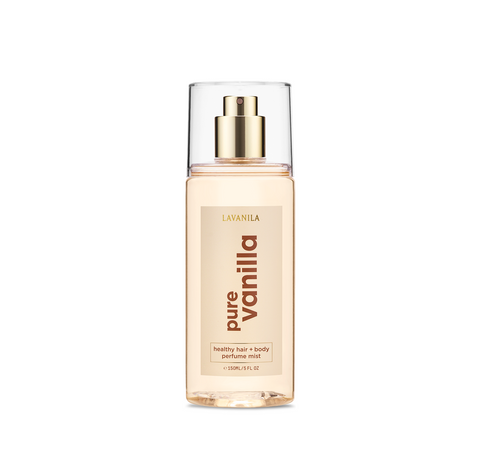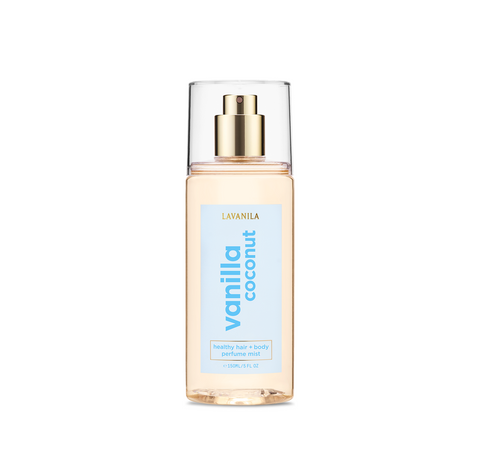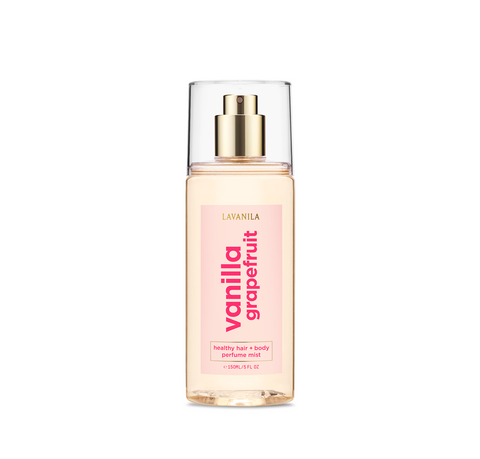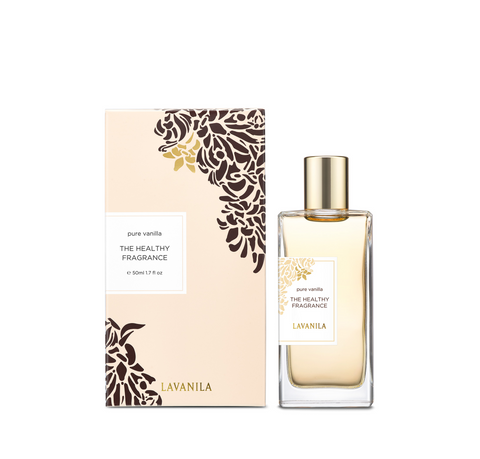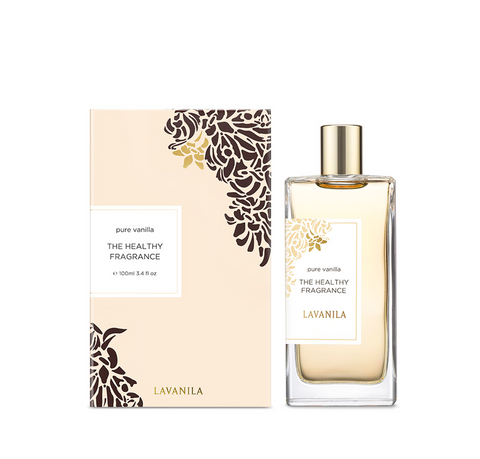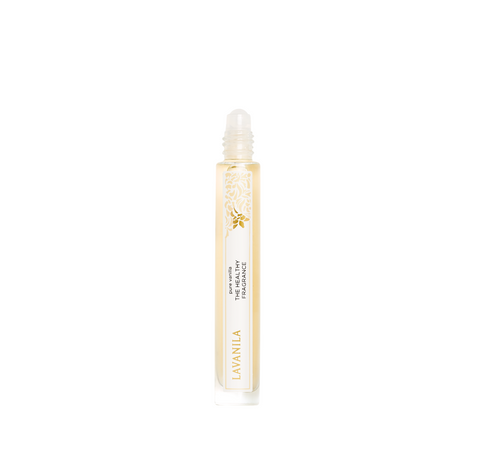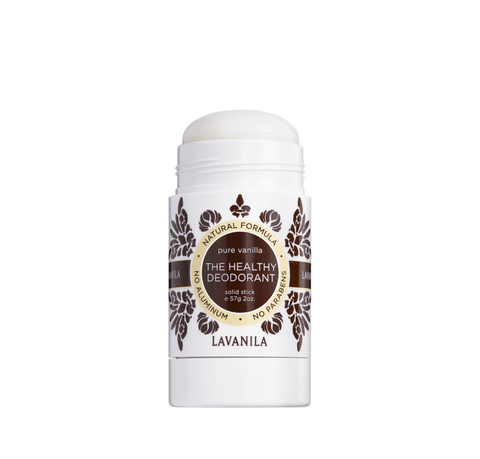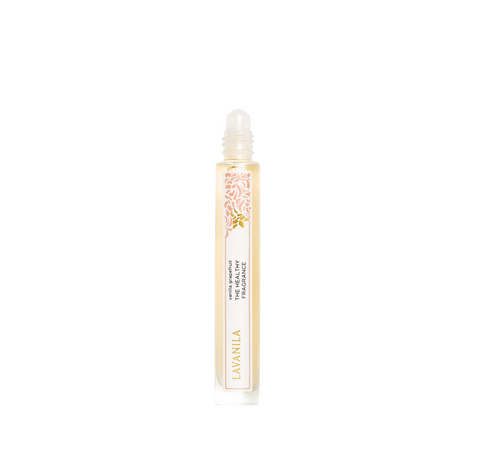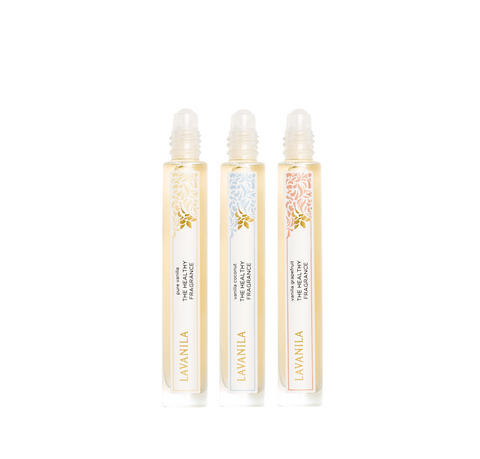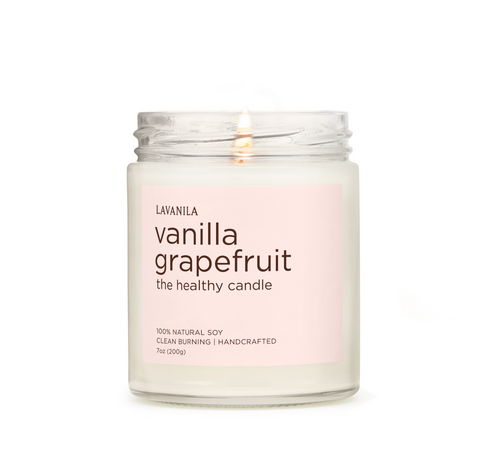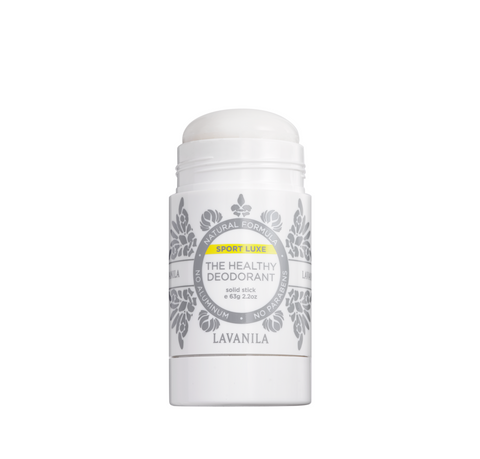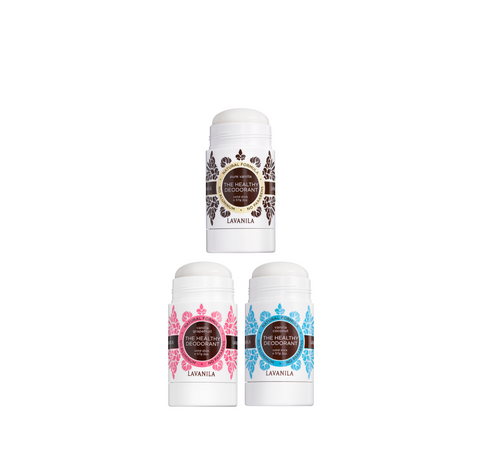There’s a growing buzz around the question: “Are fragrances bad for you?” The products we use every day—cologne, perfume, shampoo, even “unscented” lotion—are packed with fragrance. But most people don’t think twice about spraying on their favorite scent or slathering on a nicely scented cream. It smells good, so it must be fine. Right?
That assumption is exactly what’s now being challenged. More consumers are asking: “Is cologne bad for you? Is perfume bad for you? Are fragrances bad for you overall?”. These questions aren’t coming from paranoia—they're grounded in science, consumer advocacy, and a growing awareness that what's hidden in our products could be affecting our health.
The short answer? Yes, fragrances can be harmful. And not just in one way. The conversation about fragrance safety involves everything from allergic reactions and hormonal disruptions to long-term environmental consequences. Whether it's in personal care, cleaning products, or air fresheners, fragrance is everywhere—and often hidden behind vague labels.
The truth is, most fragrances aren’t regulated as thoroughly as you might expect. The term “fragrance” or “parfum” on an ingredient list can mask a cocktail of undisclosed chemicals. Many of these are linked to known health risks, yet they remain protected as “trade secrets.” The laws around fragrance labeling are outdated, leaving consumers exposed to potential hazards without full transparency.
So, what exactly makes people ask, “Is wearing cologne bad for you?” For starters, personal reactions. Skin rashes, migraines, breathing issues, and sensitivity flare-ups are increasingly common, especially among people in indoor spaces like schools or offices. It’s becoming more apparent that fragrance is not just a matter of preference—it’s a public health topic.
But the issue goes deeper than surface-level symptoms. Scientific studies have linked common fragrance chemicals to more serious outcomes, including hormone disruption, reproductive toxicity, and even developmental problems in children. This isn’t about fear-mongering—it’s about understanding the real risks and making informed choices.
That’s why this article exists: to give you the facts, the context, and the cleaner options available. We’ll look at what fragrance really is, how it’s made, what kinds of chemicals are often hidden behind the label, and how synthetic and natural scents compare. We’ll also dive into specific product categories—like baby wipes, deodorants, air fresheners, and so-called unscented products—to see where fragrance hides and how to protect yourself.
You’ll learn why the question “Are perfumes bad for you?” deserves more than a yes or no. It’s about the type of perfume, the ingredients inside it, and the level of transparency the brand provides. Not all fragrance is created equal, and not all perfume is a health risk. Some alternatives exist that offer the emotional and aesthetic value of scent without the chemical cloud.
One of those alternatives? Organic perfume. Clean, naturally derived, and free from hidden synthetics, organic fragrances are rising fast as the safer, more ethical choice. At Lavanila, we lead this movement by crafting perfumes with simple, honest ingredients that perform beautifully—never relying on synthetic complexity or hidden toxins.
In this guide, we’ll break it all down:
-
Why people are questioning fragrance safety
-
What ingredients are typically hidden in the label “fragrance”
-
The health and environmental stakes of conventional perfume
-
The difference between synthetic and natural fragrance
-
The best organic perfume options—and why they’re worth it
-
Practical ways to avoid harmful fragrance exposure in your home and routine
By the end, you’ll have a clear answer to whether fragrances are bad for you—and, just as importantly, you’ll have the knowledge to choose better, cleaner options that protect your health while still letting you enjoy the scents you love.
So let’s get into it. Because once you understand what you’re really spraying, rubbing, or diffusing into your space, the case for going clean and natural becomes hard to ignore.
15% Discount on Your First Order
Subscribe for exclusive sales and promo codes
- Enjoy a 15% discount on your first purchase
- Be the first to know about our special sales and promotions
- Receive unique promo codes available only to our subscribers
Why People Are Questioning Fragrance Safety
Questions like “Is cologne bad for you?” or “Are fragrances bad for you?” aren’t just viral content—they’re part of a global conversation fueled by personal experience, scientific research, and public health awareness. The growing skepticism around synthetic fragrance is the result of years of overlooked concerns finally gaining traction.
Here’s what’s driving the shift:
1. Health Complaints Are on the Rise
People are noticing that their perfumes or colognes are making them sick. Common symptoms linked to fragrance exposure include:
-
Headaches
-
Skin irritation
-
Asthma attacks
-
Brain fog
-
Nausea
While these effects may seem minor, for some individuals they’re debilitating. Fragrance sensitivity is now recognized by many health professionals as a serious condition, and its symptoms can interfere with daily life.
2. The Lack of Ingredient Transparency
Another major reason people are questioning fragrance is the secrecy behind the word “fragrance” itself. When you see “fragrance” on an ingredient list, that could mean a blend of dozens or even hundreds of undisclosed chemicals. The concern is not just what’s in the product—but what companies aren’t required to tell you.
3. Studies Are Linking Fragrance to Hormone Disruption
Research has shown that some common ingredients in synthetic fragrance are linked to endocrine disruption, meaning they can interfere with hormone function. That includes chemicals that mimic estrogen or block testosterone—both of which can cause long-term reproductive and developmental effects. This is especially worrying for pregnant individuals and children.
4. Indoor Air Pollution Is Real
Many people believe that pollution only happens outdoors, but indoor air can be two to five times more polluted than the air outside. Why? One of the major culprits is scented products—air fresheners, candles, sprays, and yes, perfume. These items release volatile organic compounds (VOCs) into the air, affecting the respiratory systems of everyone in the space.
5. Consumer Trust in Big Beauty Is Declining
As consumers become savvier, they’re holding brands accountable. Transparency, sustainability, and ingredient integrity are no longer niche priorities—they’re mainstream expectations. When people ask whether wearing cologne is bad for them, they’re also questioning whether they can trust the brand behind it.
6. Public Health Campaigns and Clean Beauty Advocacy
Nonprofits, medical professionals, and clean beauty advocates are all doing the work to raise awareness. Thanks to these efforts, the average person is now far more educated about what’s in their products and what alternatives are available.
In short, people are questioning fragrance safety because they’re no longer willing to accept the status quo. The question isn’t just “Are perfumes bad for you?”—it’s “Why are we still using ingredients we don’t fully understand or control?”
This shift is opening the door to safer, more transparent options. That’s where clean and natural brands—and specifically organic perfume—offer a refreshing answer. At Lavanila, we believe that if an ingredient is safe, you should be able to see it. And if it’s natural, it deserves to be celebrated—that’s the standard we hold ourselves to.
Let’s explore what’s really inside those bottles marked "fragrance"—and what you can do to avoid what’s not being said.
What's at Stake: Health, Environment, and Consumer Choice
When we ask, “Are fragrances bad for you?” we’re not just asking a question about personal hygiene or cosmetic preference—we’re asking about our long-term health, environmental sustainability, and the right to make informed consumer choices. The stakes are high, and the consequences ripple far beyond a single spritz of perfume.
The Health Risks Are Personal—and Widespread
Fragrance-related health risks aren’t limited to sensitive individuals. While some people develop symptoms immediately after exposure—like migraines or skin rashes—others are slowly affected over time by long-term use of fragranced products. Here's what’s on the line:
-
Endocrine disruption: Some fragrance chemicals act as endocrine disruptors, mimicking or blocking hormones in the body. This has been linked to infertility, thyroid dysfunction, and even cancers.
-
Respiratory problems: Fragrance chemicals can trigger asthma, bronchitis, or chronic sinus issues—especially in children and the elderly.
-
Neurotoxicity: A number of ingredients hidden under the “fragrance” label have been flagged for neurotoxic potential, impacting memory, mood, or learning.
-
Skin conditions: Contact dermatitis and allergic reactions from scented products are on the rise, especially with leave-on products like deodorants, lotions, and perfumes.
As more people wonder whether cologne or perfume is bad for them, the health community is starting to respond. Medical professionals and toxicologists increasingly recommend fragrance-free alternatives for patients, reinforcing just how serious these effects can be.
Environmental Impact: Fragrance Doesn’t Just Disappear
When you spray a perfume or use a fragranced cleaner, those chemicals don’t vanish—they disperse into your home’s air, wash down your drain, or end up in waterways. Here’s how fragrance pollution adds up:
-
Air quality: Scented products are a major contributor to poor indoor air quality, compounding the problem of VOC buildup.
-
Water contamination: Synthetic fragrance compounds can persist in the environment and leach into rivers, lakes, and oceans. These compounds don’t break down easily and can harm aquatic ecosystems.
-
Bioaccumulation: Certain fragrance ingredients—like synthetic musks—accumulate in wildlife and even human tissue over time.
If you care about clean living, clean air, and clean water, then it makes sense to examine the question “Are fragrances bad for you?” through an environmental lens, too.
Consumer Choice: The Right to Know What’s in Your Products
Many brands still rely on outdated trade secrets, making full ingredient transparency a rare exception. Companies aren’t required to list the components of their fragrance blends due to outdated “trade secret” protections. This makes it nearly impossible for consumers to:
-
Identify allergens
-
Avoid hormone-disrupting chemicals
-
Compare products on an even playing field
-
Make informed choices for their families
It’s not just a health issue—it’s a transparency issue. People are asking, “Is wearing cologne bad for you?” because they feel left in the dark. We have full access to food labels, nutrition facts, and medicine dosages. Why should fragrances be different?
The result is a growing movement toward safer, simpler alternatives—products that proudly list what’s inside, use natural ingredients, and minimize risk. These aren’t just “alternatives” anymore; they’re fast becoming the new standard.
Clean, Natural, and Transparent: The Organic Solution
This is where clean and natural fragrance options shine. Organic perfumes, in particular, answer all three questions at once:
-
“Are fragrances bad for you?” Not if you’re using truly clean formulations.
-
“Is cologne bad for you?” Not when it's made without hidden chemicals.
-
“Are perfumes bad for you?” Not if the ingredients are natural and non-toxic.
Organic perfume offers a clear path forward. By using essential oils, plant extracts, and safe botanical carriers, these fragrances deliver scent without synthetic compromise. They’re not only safer for people and the planet—they empower you with transparency.
We are proud to embody this clean fragrance philosophy at Lavanila. Our collection of organic perfumes is crafted from naturally derived ingredients, free from the synthetic mystery chemicals that plague mainstream fragrances. Our scents are sophisticated, layered, and designed to evolve beautifully with your body chemistry.
The more consumers understand what’s at stake, the clearer the choice becomes. Protecting your health, supporting environmental sustainability, and demanding transparent labeling aren’t fringe values anymore—they’re becoming mainstream expectations.
So if you’ve ever asked yourself “Is perfume bad for you?”—you’re already on the right path. Now let’s uncover what’s really behind the word “fragrance.”
 Lavanila’s aloe-based mists offer a clean, gentle way to adapt with the seasons while nourishing your hair and uplifting your senses all year long.
Lavanila’s aloe-based mists offer a clean, gentle way to adapt with the seasons while nourishing your hair and uplifting your senses all year long.
What Is “Fragrance” Anyway?
At first glance, “fragrance” might seem like a simple word—a pleasant smell, a personal touch, a sensory luxury. But the more you dig, the more complicated it gets. People often start to question what “fragrance” really means on a label—and why so many others begin to wonder whether fragrances are bad for them once they learn what that word can actually hide.
When you see the word “fragrance” or “parfum” on a product label, it’s not just referring to one ingredient. It’s a placeholder for a complex mixture of chemicals. That single word can legally represent a cocktail of dozens or even hundreds of synthetic substances.
These blends are protected as trade secrets, meaning manufacturers don’t have to tell you what’s actually in them. That’s why the question “Is perfume bad for you?” is so difficult to answer without context. It depends entirely on what’s inside the fragrance blend.
Fragrance Is Not One Ingredient—It’s a Chemical Cluster
The components of a synthetic fragrance blend often include:
-
Solvents
-
Preservatives
-
Stabilizers
-
UV absorbers
-
Dyes
-
Fixatives
Each of these categories contains chemicals that may carry health risks. And because they’re all lumped under the word “fragrance,” companies can avoid listing them individually—even if they’re linked to endocrine disruption, asthma, or reproductive toxicity.
Hidden Behind a Simple Label
The word “fragrance” might evoke something natural—like blooming flowers or fresh citrus—but that’s rarely the reality in conventional products. Many so-called fragrances are lab-engineered to mimic those smells. And while synthetic fragrance may be cheaper and easier to produce at scale, the trade-off is safety.
It’s no wonder that more consumers are asking “Are fragrances bad for you?” The lack of transparency alone is a red flag. People want to know what they’re putting on their skin, breathing in their air, and exposing their families to.
Shifting Toward Clean, Transparent Alternatives
The natural next step for many concerned consumers is to look for products that don’t rely on vague or hidden formulations. This includes exploring organic perfume options that use clear, plant-based ingredients.
Instead of hiding behind the word “fragrance,” these products list each essential oil or botanical extract used. This level of transparency allows consumers to:
-
Avoid allergens
-
Support environmentally friendly farming
-
Choose products aligned with their personal values
At Lavanila, we are proud to be rewriting the rules of fragrance with full ingredient transparency. Our clean, sophisticated scents never rely on misleading terminology. Every formula is rooted in nature, crafted with care, and designed to evolve safely with your body chemistry.
So the next time you see the word “fragrance” on a label, pause and ask: What does that really mean? Because behind that one word could be a list of ingredients you’d never knowingly choose to use.
How Fragrances Are Made
Understanding how fragrances are made is key to answering the question of whether they’re actually bad for you. The production of fragrances isn’t as simple as extracting flowers or crushing herbs. While natural perfumes do exist, the majority of fragrances on the market today—whether in personal care products or air fresheners—are synthetically engineered.
Fragrance Manufacturing Process
Fragrance creation begins in a lab. Chemists known as perfumers blend aroma compounds to achieve specific scent profiles. These compounds might include natural essential oils, but more often, they’re made from synthetic chemicals derived from petroleum or coal tar.
Here’s a basic breakdown of how most conventional fragrances are made:
-
Selection of aroma compounds: These are the individual ingredients that make up the fragrance. Many are synthetic, created to mimic natural smells or create entirely new ones.
-
Addition of fixatives: Fixatives help the fragrance last longer on the skin. These are often made from phthalates or synthetic musks—both of which raise serious health concerns.
-
Solvents and carriers: Alcohol is the most common base, but some formulations include solvents like benzyl alcohol or diethyl phthalate, which can be skin irritants or endocrine disruptors.
-
Preservatives and stabilizers: These help prolong shelf life and maintain the integrity of the scent over time. They’re often synthetic chemicals that can cause allergic reactions or hormone interference.
Once these components are blended, the final product is diluted to the desired strength—such as eau de parfum or cologne—and bottled.
Synthetic Chemistry and Safety Shortcuts
Synthetic chemistry has allowed the fragrance industry to scale. But this industrialization comes at a cost. Many synthetic fragrance ingredients have never been adequately tested for long-term health effects, especially in combination with one another.
This leads to a growing concern: Is perfume bad for you if it’s made from untested or unregulated chemicals? The answer leans toward yes—particularly if you’re using it daily, in multiple products, and without knowing what’s in the mix.
Natural and Organic Fragrance Production
On the other hand, natural and organic perfumes follow a more transparent and eco-conscious approach. The process typically includes:
-
Sourcing from plants: Organic essential oils and botanical extracts are harvested from pesticide-free crops.
-
Simple extraction methods: Techniques like steam distillation, cold pressing, and enfleurage preserve the natural aroma without chemical alteration.
-
Minimal ingredients: Instead of dozens of hidden chemicals, organic perfumes use a few recognizable components, like jojoba oil, coconut oil, or sugarcane alcohol.
This makes the final product safer not only for the wearer but also for the environment. And unlike synthetic perfumes that may smell flat or overpowering, natural scents evolve with your skin and wear more personally.
At Lavanila, we follow this responsible process—combining essential oils and botanicals to create safe, sophisticated perfumes that are completely free from parabens, phthalates, and synthetic musks. This is how we believe fragrance should be crafted.
Why This Matters
If you’re asking, is cologne bad for you, or more broadly, are perfumes bad for you, the answer depends heavily on how they’re made. Understanding the difference between synthetic shortcuts and natural craftsmanship makes all the difference.
In summary:
-
Most commercial fragrances are made with synthetic chemicals that may carry health risks
-
Ingredient disclosure is rare, making it hard to avoid allergens or toxins
-
Organic perfume offers a safer, cleaner, and more honest alternative
The Trade Secret Defense
Companies aren’t required to disclose the specific chemicals that make up their fragrance blends. Why? Because these mixtures are considered “trade secrets.” This means a fragrance could contain any number of ingredients—including hormone disruptors, allergens, and carcinogens—and still be listed simply as “fragrance” or “parfum.”
This loophole was created decades ago to protect proprietary formulas. But today, it serves to protect companies from scrutiny rather than consumers from harm. If you’re wondering “Is cologne bad for you?” or “Is wearing cologne bad for you?”—this hidden ingredient list is a big reason why you should be concerned.
What This Means for You
The average person uses several fragranced products each day—shampoo, lotion, deodorant, laundry detergent, cleaning sprays, and air fresheners. Each of these may contain a fragrance blend made up of dozens (or hundreds) of undisclosed chemicals. Without full transparency, it’s impossible to:
-
Avoid known allergens
-
Identify ingredients linked to hormone disruption or reproductive issues
-
Choose products that align with clean living values
This is particularly alarming for people who already suffer from asthma, eczema, or chemical sensitivities. Even so-called “unscented” products can legally contain fragrance ingredients used to mask other odors.
The Clean and Natural Response
Rather than waiting for legislation to catch up, we at Lavanila take the lead by listing every ingredient—even the scent components. This kind of transparency helps build trust and allows you to make informed decisions.
We use essential oils and plant-based extracts instead of synthetic compounds. Not only do these ingredients smell natural and fresh—they’re also safer for your body and the environment.
At Lavanila, we never hide behind vague terms like “fragrance.” We clearly label every essential oil and botanical ingredient in our organic perfumes—always free from parabens, phthalates, and synthetic additives. It’s our way of offering a more honest, health-conscious fragrance experience.
The Takeaway
Fragrance should never be a mystery. When companies refuse to reveal what’s in their products, it forces consumers to choose between scent and safety. Asking “Are perfumes bad for you?” is really a question of transparency. If the answer is hidden behind a label, it’s worth reconsidering.

cruelty free

paraben free

phthalate free

all natural fragrance
Synthetic vs. Natural Fragrances: What's the Difference?
When people ask if fragrances are bad for they’re often referring to synthetic fragrances. But what actually separates synthetic from natural fragrance? And why does it matter so much for your health and the environment?
What Are Synthetic Fragrances?
Synthetic fragrances are lab-created scents made from chemical compounds. These compounds are designed to mimic natural smells or to produce entirely new aromas that don’t exist in nature. They are:
-
Derived primarily from petroleum
-
Often cheaper and easier to mass-produce
-
Used in most conventional perfumes, colognes, cleaning products, and body care items
While synthetic fragrances can offer consistency and longevity, they often come with a downside: many include phthalates, synthetic musks, and other potentially toxic additives. These ingredients have been linked to hormone disruption, allergies, and even long-term illnesses.
This brings us back to the core question: “Is perfume bad for you?” If it’s made with synthetic chemicals, the answer is increasingly pointing to yes.
What Are Natural Fragrances?
Natural fragrances are made from ingredients found in nature, such as:
-
Essential oils
-
Plant extracts
-
Natural resins
These fragrances are typically derived through methods like steam distillation or cold pressing, preserving the natural integrity of the ingredient.
When people choose natural fragrances, they’re often choosing:
-
Fewer allergens
-
Reduced exposure to synthetic toxins
-
Greater environmental sustainability
-
Full ingredient transparency
So when someone asks, “Is wearing cologne bad for you?”—if that cologne is synthetic, the answer leans toward yes. If it’s made with clean, natural ingredients, it’s generally much safer.
Clean fragrance doesn’t aim to overpower—it’s meant to complement, not compete with, your body and environment.
That’s why organic perfumes are gaining popularity. They strike a balance between function and purity. At Lavanila, we prove that you never need to sacrifice performance to enjoy a clean, naturally beautiful scent. Our perfumes are made with organic sugar cane alcohol, pure essential oils, and plant-based extracts—always free from parabens, phthalates, or synthetic musks.
Why This Difference Matters
Understanding the difference between synthetic and natural fragrance is critical if you want to protect your health and make more informed choices. When someone asks “Are perfumes bad for you?” the best response is: it depends on what’s inside.
The Hidden Ingredients Behind “Fragrance”
When people question whether fragrances are bad for them, they’re often responding to the uncertainty about what’s actually in the products they use every day. The term “fragrance” seems harmless, but it’s actually a cloak for a mix of chemicals that most people would never knowingly put on their skin or breathe into their lungs.
What’s Really Inside That Bottle?
Fragrance blends can include hundreds of chemical compounds. Many of these are not disclosed individually, and they vary from product to product. Even “unscented” items can contain masking fragrances that aren’t listed clearly on the label.
Making the Case for Organic Fragrance
In contrast, clean and organic perfumes list their ingredients openly. They use naturally derived oils, safe carrier substances like organic alcohol, and no phthalates or synthetic preservatives. This approach doesn’t just reduce your exposure to harmful chemicals—it puts you back in control.
We take pride at Lavanila in setting this standard. Our organic perfume collection is crafted with clean, transparent ingredients that nourish the skin while offering subtle, sophisticated scent profiles. With us, you always know exactly what you’re wearing—and what you’re not.
The Bottom Line
When someone asks, “Are perfumes bad for you?” the right follow-up question is: What’s in the fragrance? Because without that clarity, you’re left guessing.
By avoiding mystery blends and opting for fully transparent, naturally sourced alternatives, you can enjoy the power of scent—without the health risks hidden behind vague labels.
Safer Alternatives to Conventional Fragrances
If you love scented products but don’t want the health risks, look for brands that offer:
-
Clearly labeled, non-toxic ingredients
-
Essential oil-based scents
-
No parabens, phthalates, or synthetic musks
-
Organic or naturally derived formulations
This includes everything from dish soap to lotion to your signature scent.
Organic perfume is one of the safest ways to enjoy fragrance without compromising your health. These products use plant-based alcohols, steam-distilled essential oils, and natural fixatives.
At Lavanila, we stand out by offering a collection of clean fragrances made with natural ingredients, all listed clearly on the label. No mystery blends, no harmful additives—just clean, skin-friendly scent.
Tips for Fragrance-Free Living
You don’t have to live a scent-free life—but a low-tox lifestyle is possible and empowering. Here are practical ways to reduce your exposure:
-
Swap out one product at a time. Start with high-contact items like lotion or shampoo.
-
Use baking soda and vinegar for cleaning instead of heavily scented sprays.
-
Diffuse essential oils instead of burning candles or using plug-ins.
-
Choose “fragrance-free” laundry detergents and fabric softeners.
-
Ask guests to skip perfume before visiting if you have sensitivities.
Even small steps like these make a difference in reducing the chemical load on your body.
Top Fragrance-Free or Low-Toxic Brands
Look for brands that specialize in clean, minimal formulations. While we won’t list specific names here, trusted organic perfume makers and clean beauty companies usually:
-
Highlight full ingredient transparency
-
Use plant-based ingredients only
-
Offer third-party certifications (USDA Organic, EWG Verified, etc.)
Conclusion
What You Need to Know to Make an Informed Choice
Fragrance is everywhere—from your morning shampoo to the laundry detergent on your clothes to the air freshener in your living room. But just because it’s common doesn’t mean it’s safe. When people ask, “Are fragrances bad for you?” or “Is cologne bad for you?” they’re expressing a growing awareness that not all scents are created equal.
Synthetic fragrance blends often contain undisclosed chemicals, many of which are linked to hormone disruption, allergies, respiratory issues, and even long-term health concerns. Because of legal loopholes and outdated disclosure laws, consumers are routinely exposed without informed consent.
Understanding what’s behind the word “fragrance” is the first step in protecting yourself. Phthalates, parabens, synthetic musks, and other additives may be hiding in plain sight—masked by vague ingredient lists and misleading labels.
But here’s the good news: clean alternatives exist. Organic perfume, made from plant-based ingredients and crafted with transparency, offers a safer and more responsible way to enjoy scent.
Recap: Are Fragrances Bad for You?
Let’s go back to the core questions:
-
“Are fragrances bad for you?” Often, yes—especially if they’re synthetic and undisclosed.
-
“Is perfume bad for you?” It can be, depending on how it’s made and what’s inside.
-
“Is cologne bad for you?” The answer is the same: conventional formulas are more likely to contain harmful additives.
-
“Are perfumes bad for you long-term?” Daily, layered exposure makes the risks real and cumulative.
-
“Is wearing cologne bad for you?” If you don’t know what’s in it, you may be absorbing toxic chemicals every day.
But the solution doesn’t have to be going fragrance-free. It’s about choosing better, safer options—ones that reflect your values and protect your well-being.
The Best Clean Organic Perfume Collection from Lavanila
If you’re ready to make the switch, we at Lavanila proudly offer one of the best clean organic perfume collections available. Our scents are made with natural ingredients like essential oils and organic sugar cane alcohol—never with phthalates, parabens, or synthetic musks.
Some of our standout scents include:
Each of our clean organic perfumes is crafted to be skin-safe, long-wearing, and environmentally responsible—without ever compromising on sophistication.
Final Thoughts and Best Picks Recap
Fragrance doesn’t have to be a health risk. By choosing clean, organic perfume, you can enjoy beautiful, lasting scent without the hidden dangers.
Remember:
-
Always read labels and avoid vague terms like “fragrance” or “parfum.”
-
Look for full ingredient transparency and organic certifications.
-
Switch to natural, plant-based products for scent that’s safe and satisfying.
Make the switch today and feel the difference a truly natural fragrance can make.
 Clean and uncomplicated
Clean and uncomplicated

 Featured In
Featured In







vegan

gentle formula

100% recylable

aluminum free
